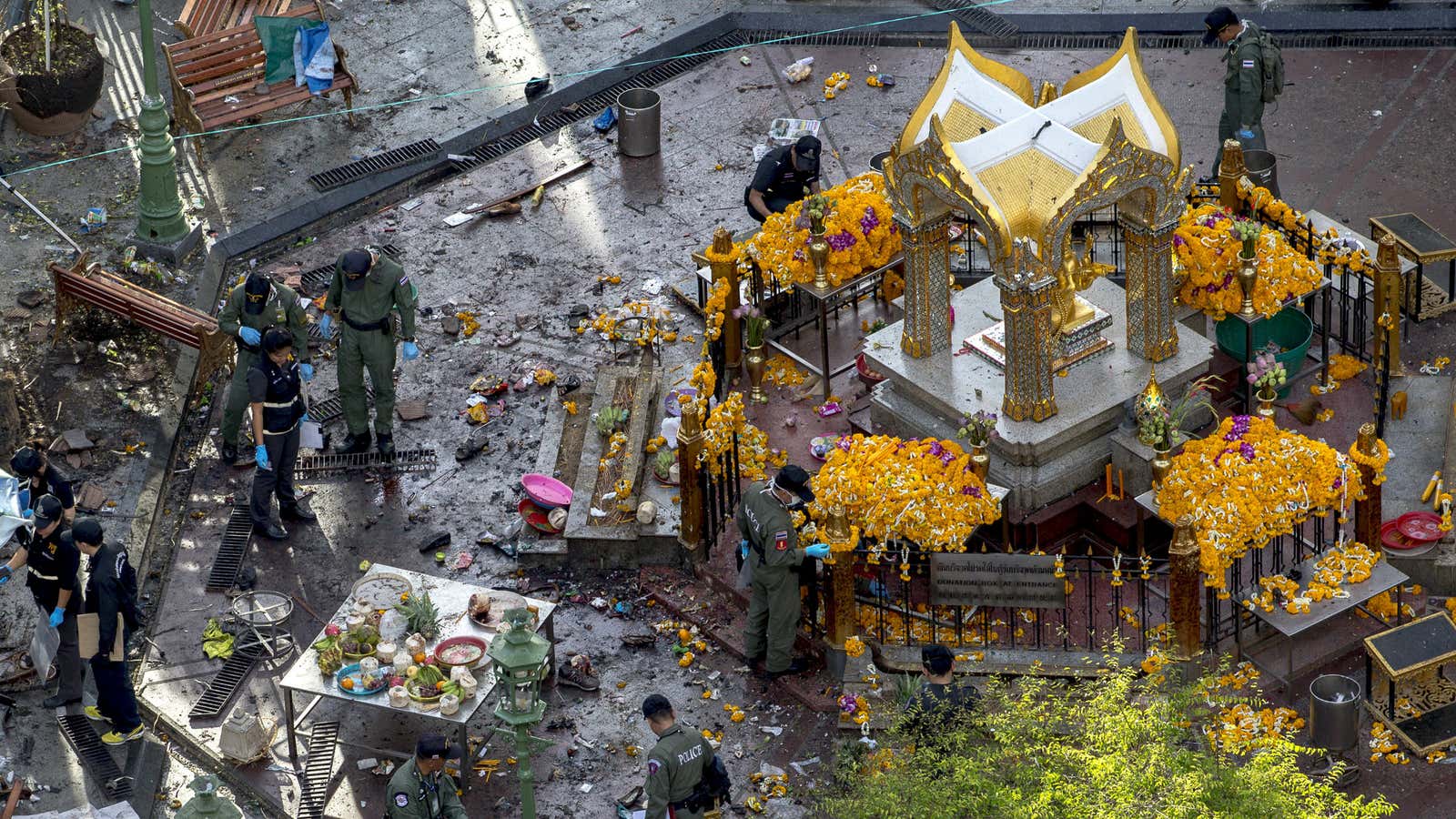Bangkok was recently ranked as one of the world’s most popular tourist destinations, and the Thai capital is expected to draw some 18 million visitors this year alone.
But that was before a bomb that officials believe targeted foreign tourists went off at Bangkok’s Erawan shrine on Aug. 17, killing 22 including Malaysians, Singaporeans, and Chinese. Today a second bomb exploded near the city’s Sathorn Pier, another area popular with tourists, that officials said had “similarities” to the Aug. 17 bomb, but did not cause any injuries.
Teflon no more
Thailand’s economy has been known for much of this century as “Teflon,” in part because the country’s beaches, shrines, wildlife, and cultural attractions’ attract foreign visitors despite pervasive political instability. A military junta enforced martial law for most of the past year, then awarded absolute power to the leader it backs. Meanwhile, foreign visitors to Thailand hit 2.3 million in June, a 53% increase from last year.
The bombs, though, will have an impact on tourism, finance minister Sommai Phasee told reporters. ”We are praying that tourists will forget about this incident” by October (the high season), he said. Tourism accounts for as much as one-fifth of Thailand’s GDP, and the incident couldn’t have come at a worse time for the country, which faces a number of serious economic threats.
Scandal-ridden fishing industry
Thailand is the world’s third-largest seafood exporter, but that position (worth $500 million a year) is in jeopardy after the European Union threatened in April to ban Thai seafood because of the industry’s reliance on slave labor and human trafficking.
The Thai seafood industry has depended on cheap (or unpaid) migrant labor for many years, and despite government attention and international pressure little has changed. Since the April threat, reports and testimony of the Thai fishing industry using trafficked Rohingya have been made public, leading one EU official to say last month that he supports banning Thai seafood from October.
Unsafe airlines
Key to Thailand’s tourism is the fast-growing local airline industry, which has seen passengers surge as low-cost carriers establish new routes, and Chinese visitors flood the country. But the industry is reportedly rife with corruption, and woefully regulated.
But in March, the UN’s International Civil Aviation Organization said it had “significant safety concerns” about Thai airlines, prompting Japan and South Korea to ban new flights from Thailand. In July, the US’s Federal Aviation Commission gave Thailand until mid-October to comply with safety measures after an inspection, or face a ban on flights to the US.
Yuan devaluation
Thai exports, in general, are likely to encounter heavier competition from cheaper Chinese products after China unexpectedly devalued its currency this month. The Chinese currency’s devaluation was one of the main reasons Thai officials recently lowered their full-year GDP growth forecast for this year to 2.7%, from 3.2%. It was the third time this year that Thai officials cut their forecast.
